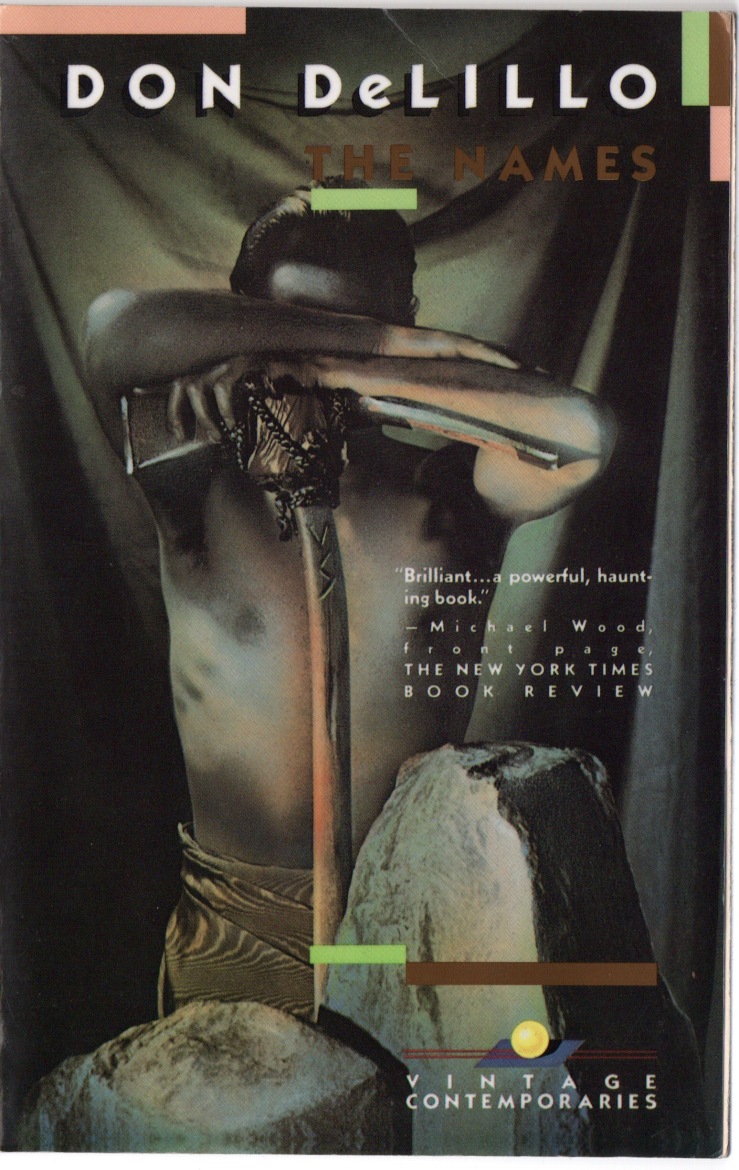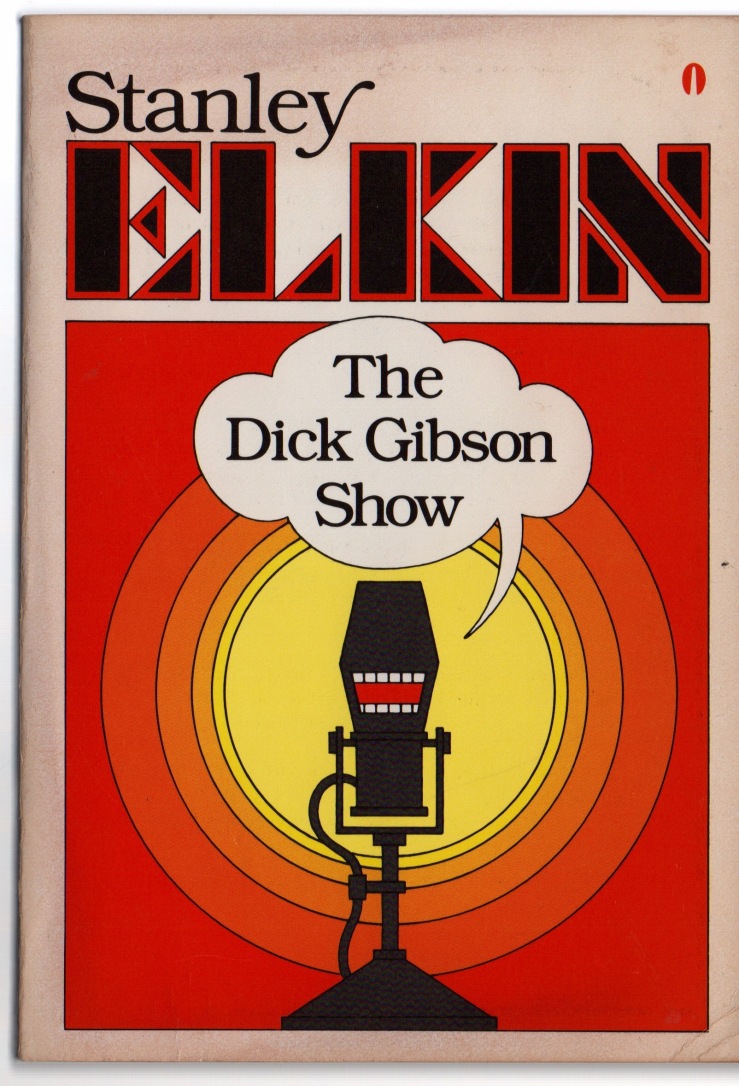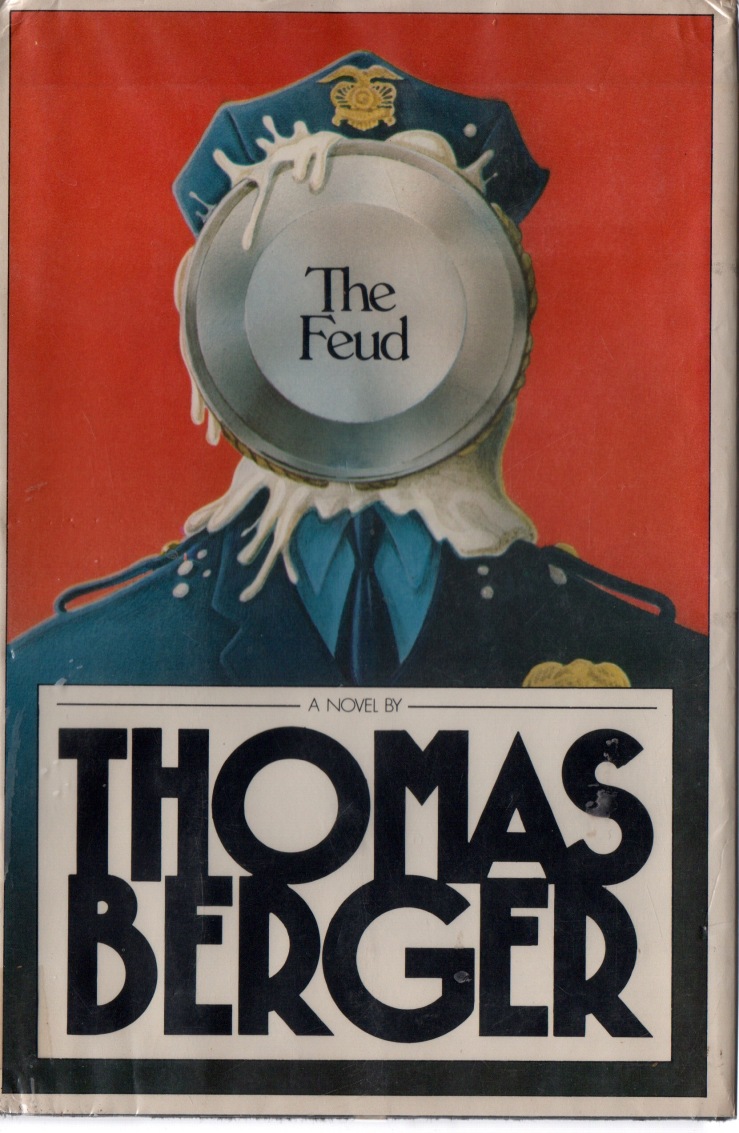
A physical copy of Don DeLillo’s 1982 novel The Names is on a shelf a few steps away from me. Normally I’d pick it up and thumb through it before writing about it—or better yet, reread it before writing about it—or even better, simply not write about it at all. But none of that would be in the spirit of these Blog about posts.
The plot of The Names, such as I remember it, is something like this: the novel’s protagonist and narrator (whose name may or may not be named Nick—I don’t really remember) is an American operative of some kind who basically works for the CIA. This specific job description is never really clear to the American protagonist or anyone else in the novel. He moves to Greece to be closer to his wife, who has left him, and his son, a budding novelist of sorts (despite being like nine or ten), whom DeLillo based on Atticus Lish (son of Gordon Lish and now a superb novelist in his own right) The protagonist’s estranged wife works an archaeological dig headed by an older dude named Owen (the protagonist’s son’s novel is Owen’s fictional biography). Owen, and later (or is it before—I can’t remember?!) the protagonist, encounter a weird language cult that performs ritualistic linguistic murders.
The Names’ great appeal is DeLillo’s riffs on language and meaning in a postmodern era. The language cult isn’t some socioculturally-realistic entity that draws the reader in, but rather an occasion for monologue. The novel is very much a monologue, no matter who is speaking. This may sound like a criticism as I now type it out (it does to me, anyway), but DeLillo’s monologue has a fun force to it. It’s sort of like a Derridean teledrama in novelistic form, all its pollyglossic intentions subsumed into a low dry clipped clever voice: DeLillo waxes on film; DeLillo waxes on pleasure; DeLillo waxes on Americanism; DeLillo waxes on expatriation; DeLillo waxes on globalism; DeLillo waxes on airports; DeLillo waxes on terrorism. A big takeaway from the novel for me was that DeLillo wrote his 9/11 novel two decades before the fact. No wonder he wrote Falling Man so quickly; he’d already thought through the problems.
I can’t really remember the linguistic system or philosophy or language critique in The Names, but I do remember the repetitions—the word name threads throughout, usually pointing toward a symbol, a referent, a landing strip. DeLillo also repeats the word recognition—which I take to simply be the power of name(s) (why would I use the adverb “simply” there?!). But the keyword isn’t name—I think the keyword of The Names is the world, a term that seems to refer to the absolute set of possibility (linguistic or otherwise) that Exist—a shifting, unstable, but nevertheless complete set that everyone must play within.
While its expatriation visions ring true, DeLillo doesn’t fully conjure the world in The Names, although that’s never his intention, I think. The whole affair is more oblique. Clipped is the word I used before—the novel is dry, witty, but resists being pegged as glib through its strangeness and humor. I laughed a lot in The Names. What I think I like most though is the ending, which I still remember—I haven’t read everything by DeLillo, but I’ve read a lot, and I can’t think of another of his that sticks the ending so well. And he does it by borrowing. DeLillo cribs from the protagonist’s son’s novel—which is to say from a child’s novel—which is to say from a real child’s work, Atticus Lish’s stuff—and that cribbing is somehow the magic ingredient that makes the rest of his novel rise up. It’s a second voice (or hey, the idea of a second voice) in a monologue, and it makes a huge difference.



